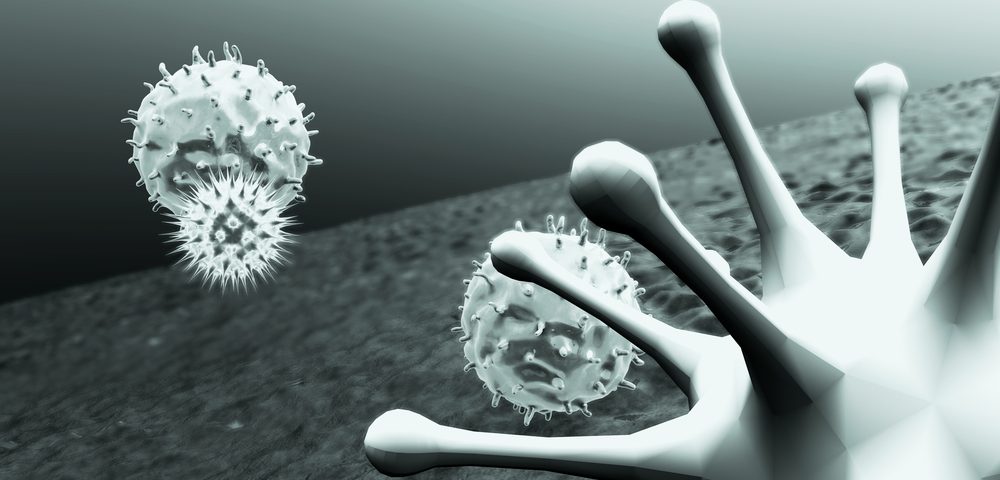Re-engineering a common cold virus to attack the deadliest kind of brain tumor extended the survival of patients whose tumor returned after various treatments, including surgery, a Phase 1 clinical trial shows.
While patients with glioblastoma usually live a median of six months, half were still alive at 9/12 months after receiving the re-engineered virus. And 20 percent lived for three years or longer.
“Of those five long-term survivors, three had durable complete responses, which is impressive for a Phase I clinical trial in glioblastoma,” Dr. Frederick Lang, a neurosurgeon at the University of Texas MD Anderson Cancer Center, said in a press release.
“Many Phase I trials might have one patient who does well, so our result is unusual, but we’re always cautious in assessing results with this very difficult disease,” added Lang, the lead author of the study.
The virus exploits the fact that the retinoblastoma protein, which normally guards against viral infection, is missing or defective in brain tumors, the researchers said. This allows it to easily invade glioblastoma cells.
Researchers’ article on the therapy, “Phase I Study of DNX-2401 (Delta-24-RGD) Oncolytic Adenovirus: Replication and Immunotherapeutic Effects in Recurrent Malignant Glioma,” appeared in the Journal of Clinical Oncology.
The trial (NCT00805376), which Anderson center researchers conducted, involved 25 patients with recurrent malignant glioma. Each received a single injection of the altered adenovirus DNX-2401 in their tumor.
The treatment reduced 18 patients’ tumors. Three achieved complete responses — defined as a more than 95 percent reduction in tumor size.
Patients’ median overall survival was 9 1/2 months, but 20 percent lived more than three years after treatment.
Researchers used a permanently implanted catheter to inject the treatment into the tumors of 12 other patients.
Imaging and analysis of tumor samples removed during post-treatment surgery showed that DNX-2401 replicates and spreads inside a tumor.
“We designed DNX-2401 to specifically infect cancer cells, replicate inside those cells to kill them, and spread from cell to cell in a destructive wave throughout the tumor,” said Dr. Juan Fueyo, a neuro-oncology professor at the Anderson center. “The clinical trial shows that happens, as predicted by our preclinical research, and it also shows that in some patients, viral infection was followed by an immune reaction to the glioblastoma that led to the strong responses,” said Fueyo, the senior author of the study.
The immune system usually fails to detect glioblastomas. But a single injection of DNX-2401 activated immune cells capable of infiltrating and killing tumor cells.
This happened because the immune system recognized the virus inside the tumor as malignant, penetrating the tumor to eliminate the threat.
Interestingly, the immune system wiped out the virus within a month, but tumor responses continued in complete responders for a year or longer.
“In the case of these long-term complete responders, the virus breaks the tumor’s shield against immune response by killing cells, creating multiple antigen targets for the immune system,” said Dr. Candelaria Gomez-Manzano, an associate neuro-oncology professor. “These tumors are then completely destroyed.”
All three of the patients who achieved complete responses to the treatment eventually died when the tumor returned three or four years later.
“We have work to do in the lab to understand how we might permanently defeat these tumors and extend the impact of treatment to more of the 80 percent who did not have a strong response,” Fueyo said. The team is conducting research on adding new elements to the virus to stimulate a better immune response.
The researchers founded a company, DNAtrix, that is working on clinical trials to test the modified virus in combination with other therapies.
In a Phase 2 trial (NCT02798406) that is recruiting participants, researchers will see if a combination of DNX-2401 and the immunotherapy Keytruda (pembroluzimab) can trigger an even stronger immune response in glioblastomas and gliosarcomas.


